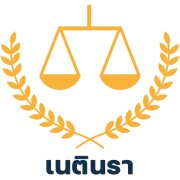ทนายความ ชนพื้นเมือง ที่ดีที่สุดใน ประเทศไทย
แบ่งปันความต้องการของคุณกับเรา รับการติดต่อจากสำนักงานกฎหมาย
ฟรี ใช้เวลา 2 นาที
หรือปรับแต่งการค้นหาของคุณโดยเลือกเมือง:
รายชื่อทนายความที่ดีที่สุดใน ประเทศไทย
คู่มือกฎหมายเขียนโดย Smart Legal Solutions:
- Main Legal Measures to Protect Foreign Investment in Thailand
- The importance of the geographical indications for the Thai economy
1. เกี่ยวกับกฎหมายชนพื้นเมืองในประเทศไทย
กฎหมายชนพื้นเมืองในประเทศไทยมุ่งคุ้มครองวิถีชีวิต วัฒนธรรม และการใช้ทรัพยากรธรรมชาติของชุมชนท้องถิ่น. หลักการสำคัญคือการบรรเทาผลกระทบจากกฎหมายทรัพยากรธรรมชาติต่อชีวิตประจำวันของชนพื้นเมือง.
กฎหมายดังกล่าวยังเชื่อมโยงกับสิทธิของชุมชนในการมีส่วนร่วมในการตัดสินใจเกี่ยวกับการใช้พื้นที่และทรัพยากรในพื้นที่ที่เกี่ยวข้อง. นอกจากนี้ ผู้ที่อาศัยอยู่ในพื้นที่ชนบทมักต้องเผชิญบทบาทของรัฐและหน่วยงานท้องถิ่นในการคุ้มครองวิถีชีวิตของตน.
2. ทำไมคุณอาจต้องการทนายความ
การมีทนายความช่วยเหลือสามารถทำให้คุณเข้าใจสิทธิและขั้นตอนทางกฎหมายได้ชัดเจนขึ้น. ต่อไปนี้เป็นสถานการณ์จริงที่มักพบในประเทศไทย ซึ่งผู้คนมักต้องการคำปรึกษาทางกฎหมายด้านชนพื้นเมือง
กรณีที่ดินในพื้นที่ป่าสงวนถูกยึดครองหรือมีข้อพิพาทเรื่องการครอบครอง โดยไม่มีเอกสารสิทธิ์ที่ชัดเจน ทนายความช่วยให้คุณเรียบเรียงเอกสารและดำเนินการต่อสู้เรื่องกรรมสิทธิ์ได้. ระบุรายละเอียดของพื้นที่และประวัติการอยู่อาศัยเพื่อใช้เป็นพยานหลักฐาน
กรณีที่ชุมชนต้องการขออนุญาตใช้ประโยชน์พื้นที่ป่าหรือขอรับรองสิทธิการใช้งานโดยชุมชน ทนายความสามารถช่วยยื่นคำขอและติดตามกระบวนการกับหน่วยงานรัฐ.
กรณีข้อพิพาทกับหน่วยงานรัฐเกี่ยวกับการเรียกร้องค่าชดเชย หรือการออกใบอนุญาตการพัฒนาโครงการในพื้นที่ชนพื้นเมือง ทนายความช่วยเจรจาและยืนยันข้อเรียกร้องของชุมชน
กรณีถูกร้องเรียนหรือฟ้องร้องจากหน่วยงานรัฐเกี่ยวกับการก่อสร้าง การเข้าอยู่อาศัย หรือการครอบครองพื้นที่ในพื้นที่อนุรักษ์ ทนายความจะช่วยให้คุณเตรียมเอกสารและยื่นโต้แย้งอย่างมีหลักฐาน
กรณีต้องการวางกรอบร่วมมือกับชุมชนอื่นๆ เพื่อการบริหารทรัพยากรและวัฒนธรรม ทนายความช่วยออกแบบข้อตกลงชุมชนและสัญญาการมีส่วนร่วม
3. ภาพรวมกฎหมายท้องถิ่น
พระราชบัญญัติป่าไม้ พ.ศ. 2484 เป็นกรอบหลักที่ควบคุมการใช้พื้นที่ป่าและทรัพยากรธรรมชาติในประเทศไทย. กฎหมายนี้ส่งเสริมการจัดการโดยรัฐและอาจเกี่ยวข้องกับสิทธิของชุมชนที่อาศัยอยู่ในพื้นที่ป่า
พระราชบัญญัติว้กษณและอุทยานแห่งชาติ สงวนพันธุ์สัตว์ป่า และพื้นที่อนุรักษ์ พ.ศ. 2562 กำหนดกรอบการจัดการพื้นที่อนุรักษ์และการบังคับใช้อย่างเครงครัด. ชุมชนที่มีวิถีชีวิตในพื้นที่ดังกล่าวอาจต้องขออนุญาตหรือการมีส่วนร่วมในการบริหารพื้นที่
“กฎหมายทรัพยากรธรรมชาติในประเทศไทยมุ่งเพิ่มส่วนร่วมของชุมชนท้องถิ่นในการบริหารพื้นที่ป่าและทรัพยากร” - แหล่งข้อมูลทางราชการ
รวมถึงรัฐธรรมนูญ พ.ศ. 2560 ซึ่งให้แนวทางการคุ้มครองสิทธิพื้นฐานของประชาชนและการคุ้มครองวิถีชีวิตของชนพื้นเมือง โดยต้องตรวจสอบบทบัญญัติที่เกี่ยวข้องในฉบับปัจจุบันด้วยการปรึกษาทนายความเพื่อความชัดเจนในบริบทของพื้นที่คุณ
4. คำถามที่พบบ่อย
อะไรคือชนพื้นเมืองตามกรอบกฎหมายในประเทศไทย?
ชนพื้นเมืองคือกลุ่มชุมชนที่มีถิ่นฐานดั้งเดิมและวัฒนธรรมประจำกลุ่ม. กฎหมายไทยให้ความสำคัญกับการคุ้มครองวิถีชีวิตและทรัพยากรที่พึ่งพาได้
อย่างไรฉันจะเริ่มหาทนายความด้านชนพื้นเมืองได้?
เริ่มจากค้นหาทนายที่มีประสบการณ์ด้านสิทธิชนพื้นเมืองและที่ดิน. ตรวจสอบผลงาน and คำติชมจากชุมชนอื่นเพื่อประเมินความเหมาะสม
เมื่อไหร่ควรปรึกษาทนายความเมื่อมีข้อพิทาในพื้นที่ป่า?
ปรึกษาทันทีเมื่อมีข้อพิทาเกี่ยวกับการยึดครองพื้นที่ หรือเมื่อมีการออกเอกสารที่อาจผูกมัดชุมชน. เพื่อรวบรวมหลักฐานตั้งต้นได้เร็ว
ที่ไหนคือต้นแบบการยื่นคำร้องขออนุญาตในพื้นที่ชนพื้นเมือง?
ยื่นที่หน่วยงานรัฐที่รับผิดชอบเรื่องทรัพยากรธรรมชาติ เช่น กรมป่าไม้ หรือกรมอุทยานแห่งชาติ สัตว์ป่า และพันธุ์พืช
ทำไมกฎหมายท้องถิ่นถึงมีความสลับซับซ้อน?
เพราะฎหมายหลายฉบับมีกรอบการควบคุมที่แตกต่างกัน เช่น ป่าไม้ อุทยาน และการใช้พื้นที่ร่วม ซึ่งต้องประสานการทำงานระหว่างหน่วยงาน
สามารถยืนยันสิทธิในที่ดินของชนพื้นเมืองได้อย่างไร?
ต้องยื่นเอกสารหลักฐานการอยู่อาศัย การใช้ประโยชน์ทรัพยากร และหลักฐานการครอบครองที่เกี่ยวข้อง. ทนายช่วยจัดทำคำร้องและเตรียมสำนวน
ควรทำอย่างไรถูกรัฐเรียกร้องค่าเสียหายหรือรื้อถอนได้?
ปรึกษาทนายความทันทีเพื่อประเมินสิทธิ์และเตรียมคดี. รวบรวมหลักฐานและเอกสารพิสูจน์การครอบครองหรือการใช้สิทธิ
การเปลี่ยนแปลงกฎหมายส่งผลอย่างไรต่อชุมชน?
การเปลี่ยนแปลงอาจขยายหรือจำกัดสิทธิการใช้พื้นที่. ควรติดตามข่าวสารและปรึกษาทนายอย่างสม่ำเสมอ
ฉันต้องเตรียมเอกสารอะไรบ้างก่อนปรึกษาทนาย?
บัตรประจำตัว, สำเนาทะเบียนบ้าน, เอกสารการอยู่อาศัยในพื้นที่, แผนที่พื้นที่ที่เกี่ยวข้อง, และหลักฐานการใช้ประโยชน์ทรัพยากร
ระยะเวลาในการดำเนินการคดีประมาณเท่าไหร่?
คดีที่ดินทั่วไปใช้เวลาหลายเดือนถึงหลายปี ขึ้นอยู่กับความซับซ้อนของข้อพิพาทและการพิจารณาของศาล
ฉันควรปรึกษาทนายก่อนยื่นคำร้องอย่างไร?
ปรึกษาเพื่อระบุกลยุทธ์ ค้นหาที่มาของสิทธิ และตรวจสอบเอกสารที่จำเป็น. การเตรียมพร้อมช่วยลดความเสี่ยงได้
ความแตกต่างระหว่างการเจรจาและการฟ้องคืออะไร?
การเจรจาเป็นแนวทางลดความขัดแย้งโดยมีข้อตกลงร่วม. การฟ้องเป็นกระบวนการทางศาลที่มีการตัดสินและบังคับ
ฉันควรทำอะไรถ้ากลัวการละเมิดสิทธิของชุมชน?
ติดต่อทนายความเพื่อประเมินสถานการณ์ทันที. เก็บรักษาพยานหลักฐานและบันทึกเหตุการณ์ไว้อย่างเป็นระบบ
5. ทรัพยากรเพิ่มเติม
- กรมป่าไม้ - แหล่งข้อมูลกฎหมายและระเบียบที่เกี่ยวกับป่าไม้ และแนวทางการมีส่วนร่วมของชุมชนในพื้นที่ป่า: https://www.forest.go.th
- กรมอุทยานแห่งชาติ สัตว์ป่า และพันธุ์พืช - ข้อมูลเกี่ยวกับพื้นที่อนุรักษ์ สิทธิชุมชน และขั้นตอนการขออนุญาตใช้พื้นที่: https://www.dnp.go.th
- ราชกิจจานุเบกษา - แหล่งสำคัญสำหรับประกาศกฎหมายและพระราชบัญญัติ: https://www.ratchakitcha.soc.go.th
6. ขั้นตอนถัดไป
- ค้นหาข้อมูลพื้นฐานเกี่ยวกับชนพื้นเมืองในพื้นที่ของคุณ และรวบรวมเอกสารเบื้องต้น. ระยะเวลา: 1-2 สัปดาห์
- กำหนดเป้าหมายทางกฎหมายที่ชัดเจน เช่น คุ้มครองที่อยู่อาศัยหรือขอสิทธิใช้งานพื้นที่. ระยะเวลา: 1 สัปดาห์
- หาทนายความด้านชนพื้นเมืองที่มีประสบการณ์ในพื้นที่ของคุณ. ระยะเวลา: 1-3 สัปดาห์
- นัดปรึกษากฎหมายครั้งแรกเพื่อประเมินสถานการณ์และเอกสารที่จำเป็น. ระยะเวลา: 1 สัปดาห์
- เตรียมเอกสารทั้งหมดและจัดทำคำร้องหรือคำร้องพิจารณาคดี. ระยะเวลา: 2-4 สัปดาห์
- ยื่นคำร้องต่อหน่วยงานที่เกี่ยวข้องและติดตามกระบวนการ. ระยะเวลา: 1-3 เดือนขึ้นไปขึ้นกับกรณี
- ติดตามผลและปรับกลยุทธ์ตามสถานการณ์ หากจำเป็นให้ยื่นอุทธรณ์หรือฟ้องต่อศาล. ระยะเวลา: หลายเดือนถึงปี
Lawzana ช่วยคุณค้นหาทนายความและสำนักงานกฎหมายที่ดีที่สุด ใน ประเทศไทย ผ่านรายชื่อผู้เชี่ยวชาญด้านกฎหมายที่มีคุณสมบัติเหมาะสมที่คัดสรรและตรวจสอบล่วงหน้า แพลตฟอร์มของเรานำเสนอการจัดอันดับและโปรไฟล์โดยละเอียดของทนายความและสำนักงานกฎหมาย ช่วยให้คุณเปรียบเทียบตามสาขากฎหมาย รวมถึง ชนพื้นเมือง ประสบการณ์ และความคิดเห็นของลูกค้า
แต่ละโปรไฟล์ประกอบด้วยคำอธิบายเกี่ยวกับสาขากฎหมายของสำนักงาน รีวิวจากลูกค้า สมาชิกในทีมและหุ้นส่วน ปีที่ก่อตั้ง ภาษาที่พูด ที่ตั้งสำนักงาน ข้อมูลการติดต่อ การมีตัวตนบนโซเชียลมีเดีย และบทความหรือแหล่งข้อมูลที่เผยแพร่ สำนักงานส่วนใหญ่บนแพลตฟอร์มของเราพูดภาษาอังกฤษและมีประสบการณ์ทั้งในเรื่องกฎหมายท้องถิ่นและระหว่างประเทศ
ขอใบเสนอราคาจากสำนักงานกฎหมายชั้นนำ ใน ประเทศไทย — รวดเร็ว ปลอดภัย และไม่ยุ่งยาก
ข้อจำกัดความรับผิดชอบ:
ข้อมูลที่ให้ไว้ในหน้านี้มีวัตถุประสงค์เพื่อเป็นข้อมูลทั่วไปเท่านั้นและไม่ถือเป็นคำแนะนำทางกฎหมาย แม้ว่าเราจะพยายามตรวจสอบความถูกต้องและความเกี่ยวข้องของเนื้อหา แต่ข้อมูลทางกฎหมายอาจเปลี่ยนแปลงได้ตามกาลเวลา และการตีความกฎหมายอาจแตกต่างกันไป คุณควรปรึกษาผู้เชี่ยวชาญด้านกฎหมายที่มีคุณสมบัติเหมาะสมเพื่อขอคำแนะนำเฉพาะสำหรับสถานการณ์ของคุณเสมอ
เราปฏิเสธความรับผิดทั้งหมดสำหรับการกระทำที่ทำหรือไม่ทำตามเนื้อหาในหน้านี้ หากคุณเชื่อว่าข้อมูลใดไม่ถูกต้องหรือล้าสมัย โปรด contact us และเราจะตรวจสอบและแก้ไขตามความเหมาะสม
เรียกดูสำนักงานกฎหมาย ชนพื้นเมือง ตามเมืองใน ประเทศไทย
ปรับแต่งการค้นหาของคุณโดยเลือกเมือง
















